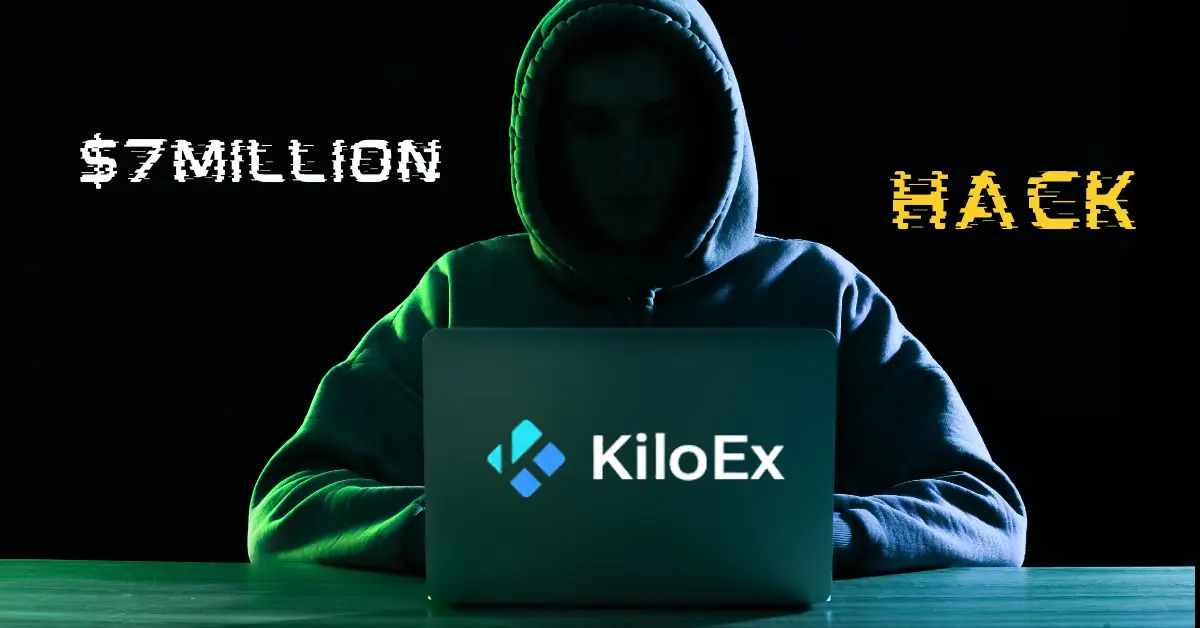
The decentralized finance (DeFi) world has once again found itself at the center of a security crisis, leaving many investors questioning the stability of the ecosystem.
This time, the focus is on KiloEx, a newly launched perpetual trading platform backed by YZi Labs (formerly Binance Labs). Just as it was gaining momentum, a major multi-chain exploit drained around $7 million from the platform. The attack has opened up fresh concerns about the vulnerabilities lurking within cross-chain trading platforms.
With billions at stake and the platform’s future hanging in the balance, it’s a story you won’t want to miss.
On April 14, KiloEx became the target of a sophisticated exploit that impacted several networks, including BNB Smart Chain, Base, and Taiko. According to blockchain security firm Cyvers, the attacker used a wallet funded via Tornado Cash to carry out a series of well-planned transactions. These transactions took advantage of a vulnerability in the platform’s price oracle, allowing the hacker to manipulate asset prices across multiple chains and quickly drain funds from the platform.
KiloEx had made a strong start. Backed by major names like Binance Wallet and PancakeSwap, the platform had just held its Token Generation Event (TGE) on March 27, quickly capturing attention in the DeFi community. But the excitement was short-lived as the attack hit, putting a serious halt on the platform’s early momentum.
The hack caused immediate damage. KiloEx was forced to pause all platform activities while the team worked to figure out what had gone wrong. As the news spread, the value of KiloEx’s KILO token plunged by 30%, erasing $3.5 million from its market cap within hours.
What had been an $11 million market cap before the exploit is now just $7.5 million, highlighting how vulnerable new DeFi tokens can be when security is compromised.
To investigate the breach, KiloEx has launched a bug bounty program, hoping that ethical hackers will help trace the stolen funds and identify the exact flaw that made the attack possible. Security teams are closely monitoring the attacker’s wallet, as the exploit hasn’t been fully contained.
There are growing concerns that stablecoins like USDC, which were used during the hack, could eventually be blacklisted, adding even more complications to an already tense situation.
This incident highlights the critical importance of strong security measures, especially for DeFi platforms that operate across multiple blockchains. As the investigation continues, all eyes are on KiloEx and how they handle the aftermath. Their response will likely determine whether they can recover or if they’ll become another cautionary tale in the DeFi world.
Can platforms in this space ever be fully secure, or will security breaches continue to undermine investor confidence? The answer may not come easily, but it will likely shape the future of decentralized finance.
Cryptocurrency prices have dropped sharply in the past 24 hours. Investors pulled out of risky…
As Ethereum (ETH), Cardano (ADA), and Rexas Finance (RXS) show themselves as viable rivals for…
The market sentiments have been varying ever since Bitcoin price volatility seems to have choked…
Story Highlights The Ethereum price today is . ETH price with a potential surge could…
Story Highlights The Bitcoin price today is . The BTC price could hit a maximum…
Some crypto projects build visibility through marketing. Others earn it by quietly raising millions while…